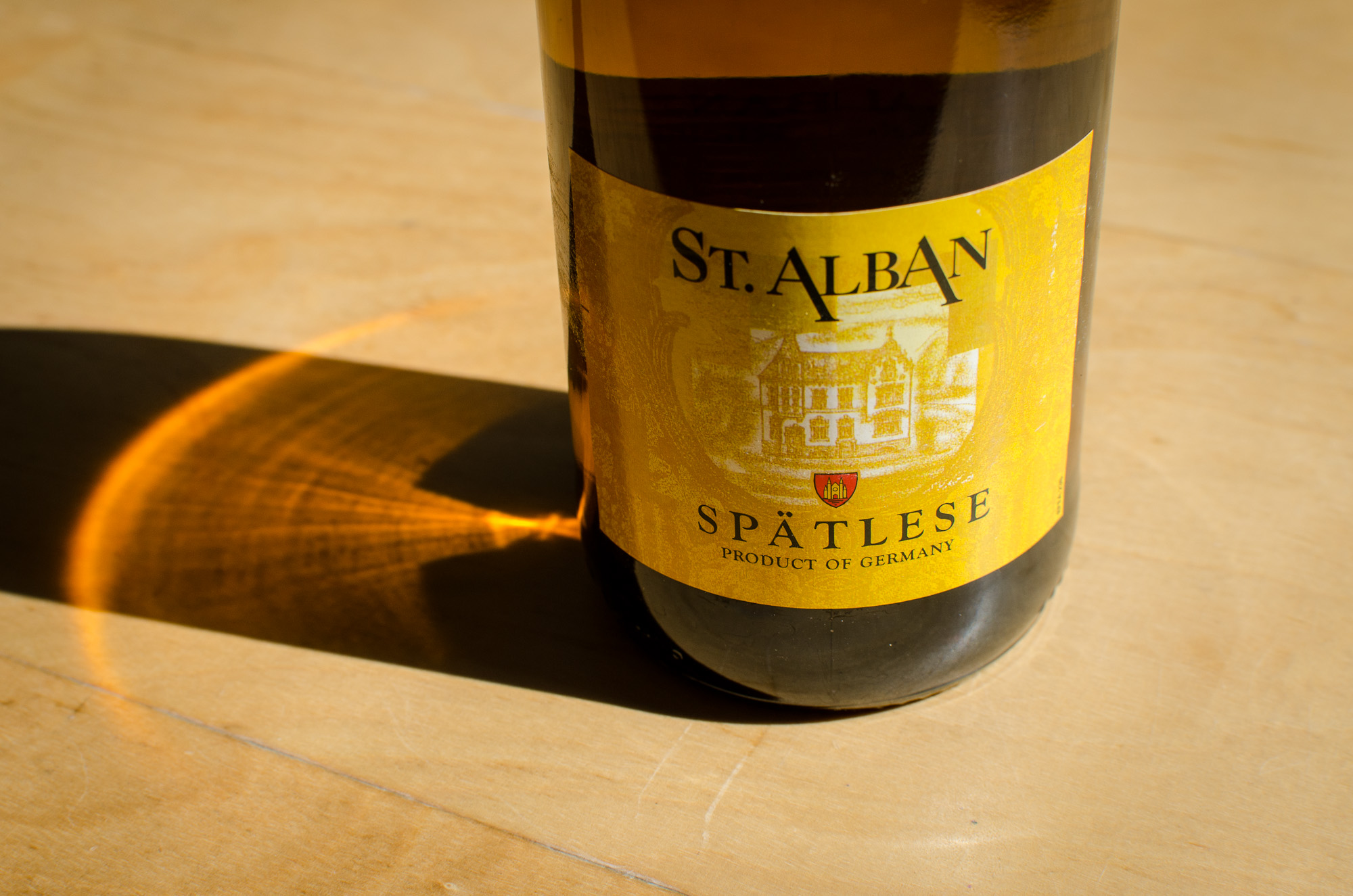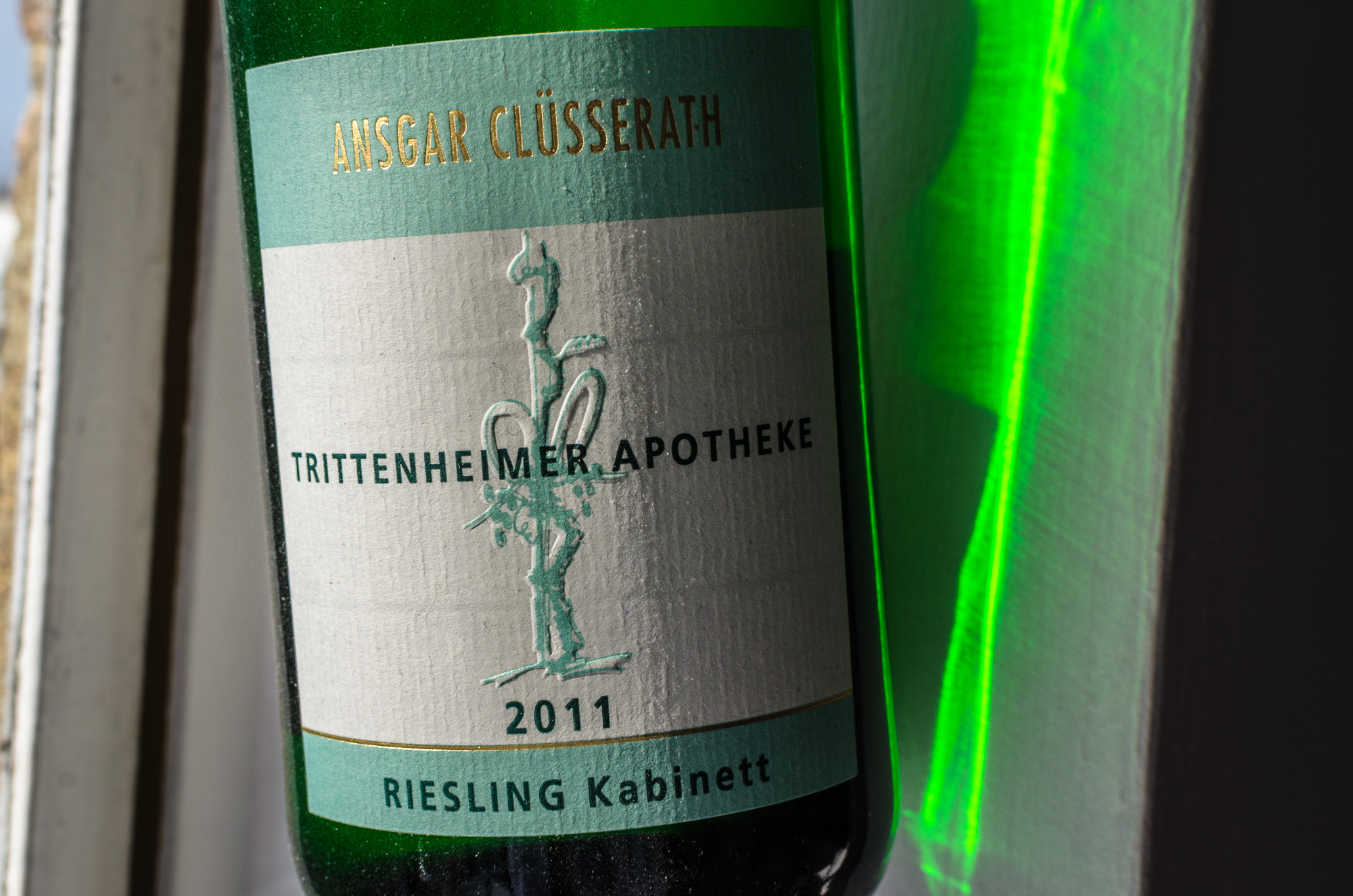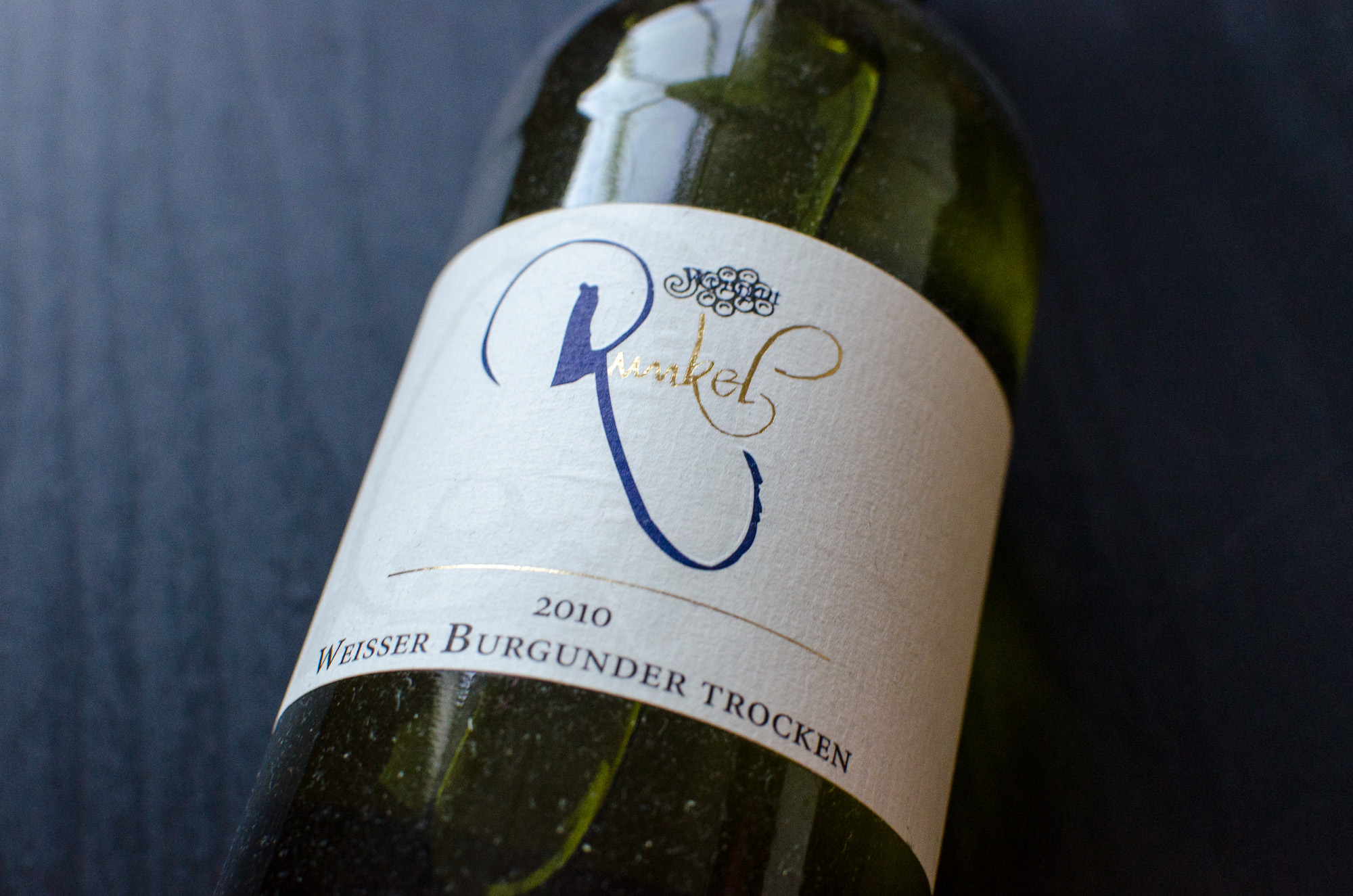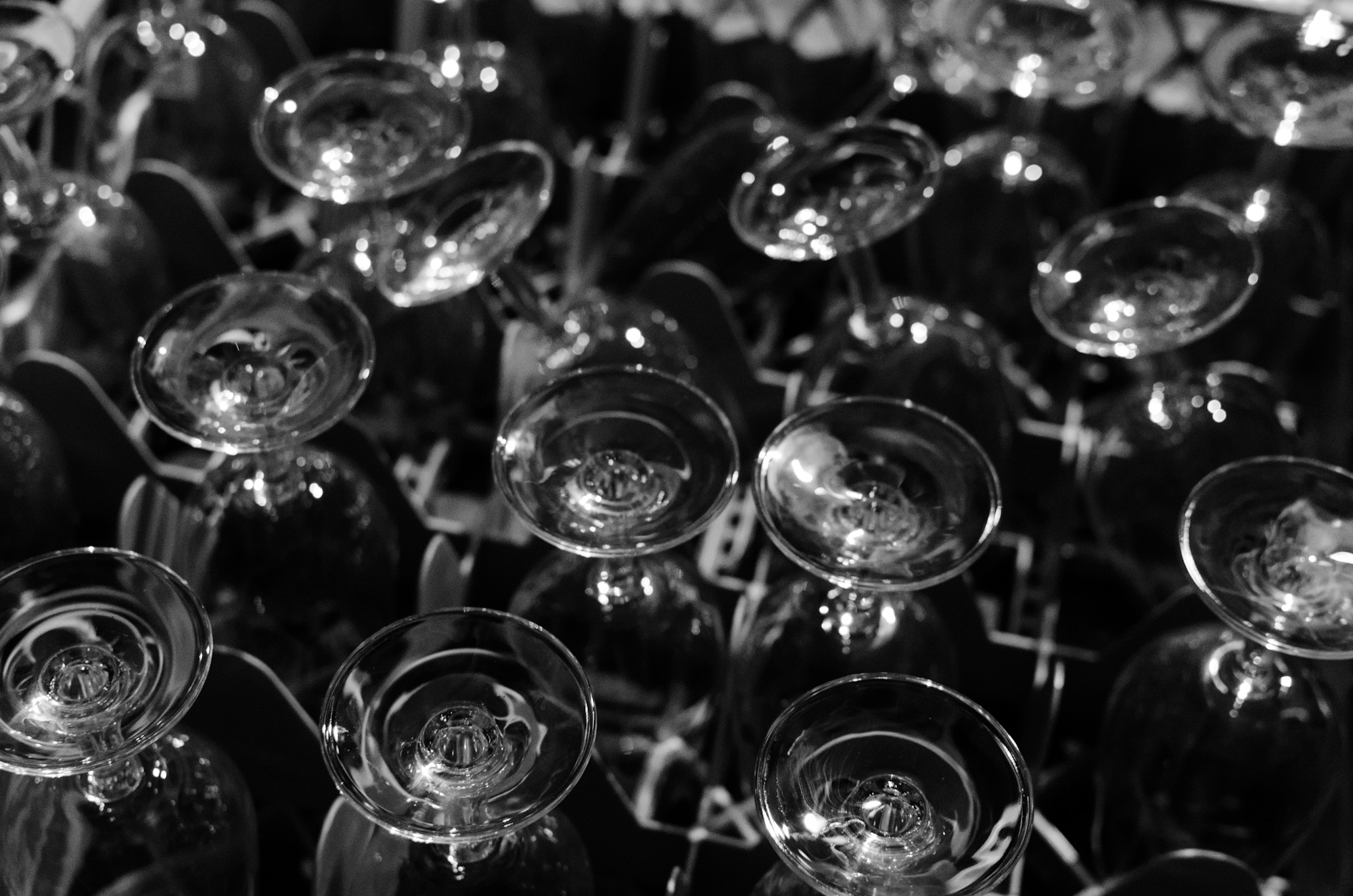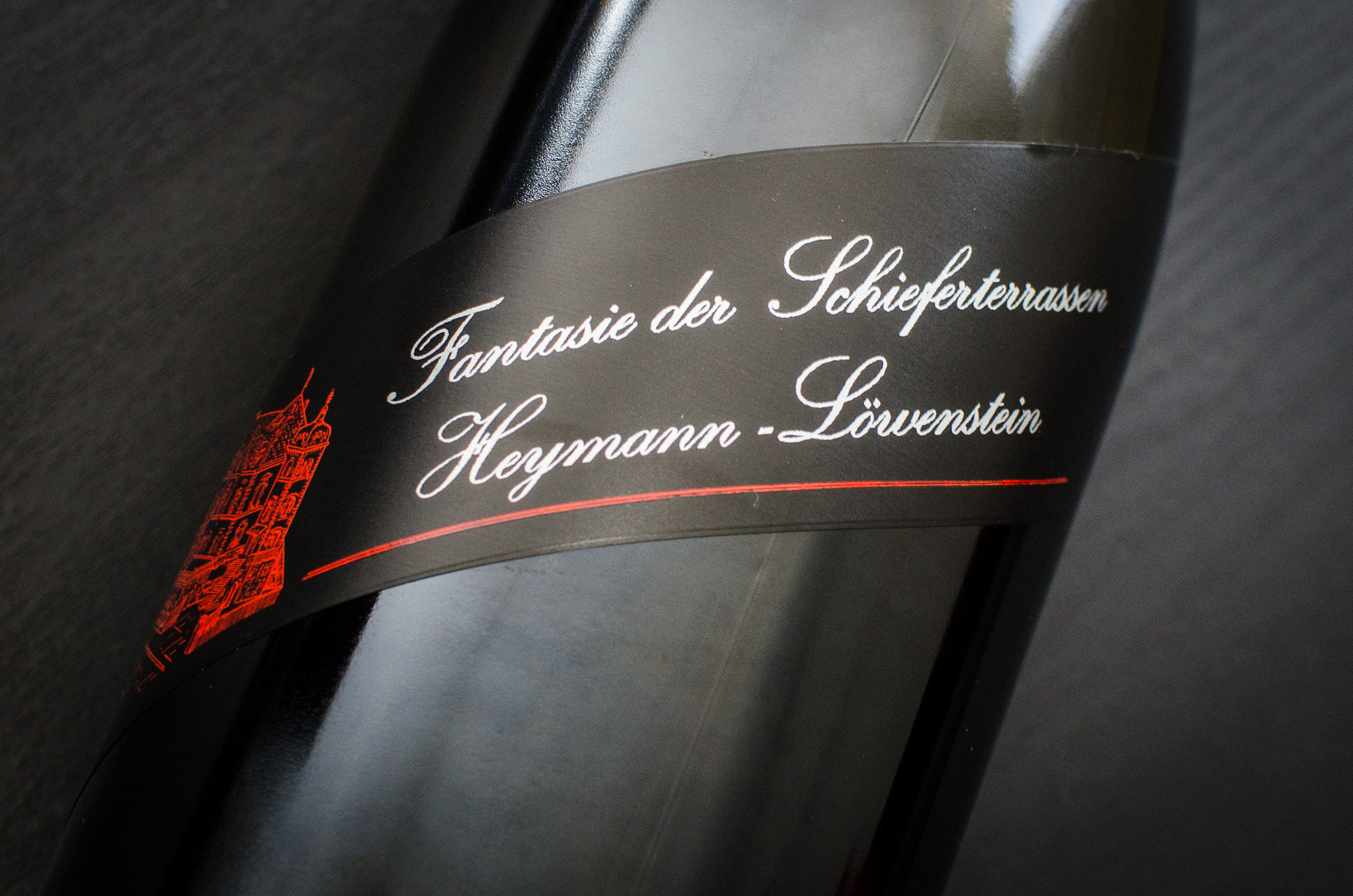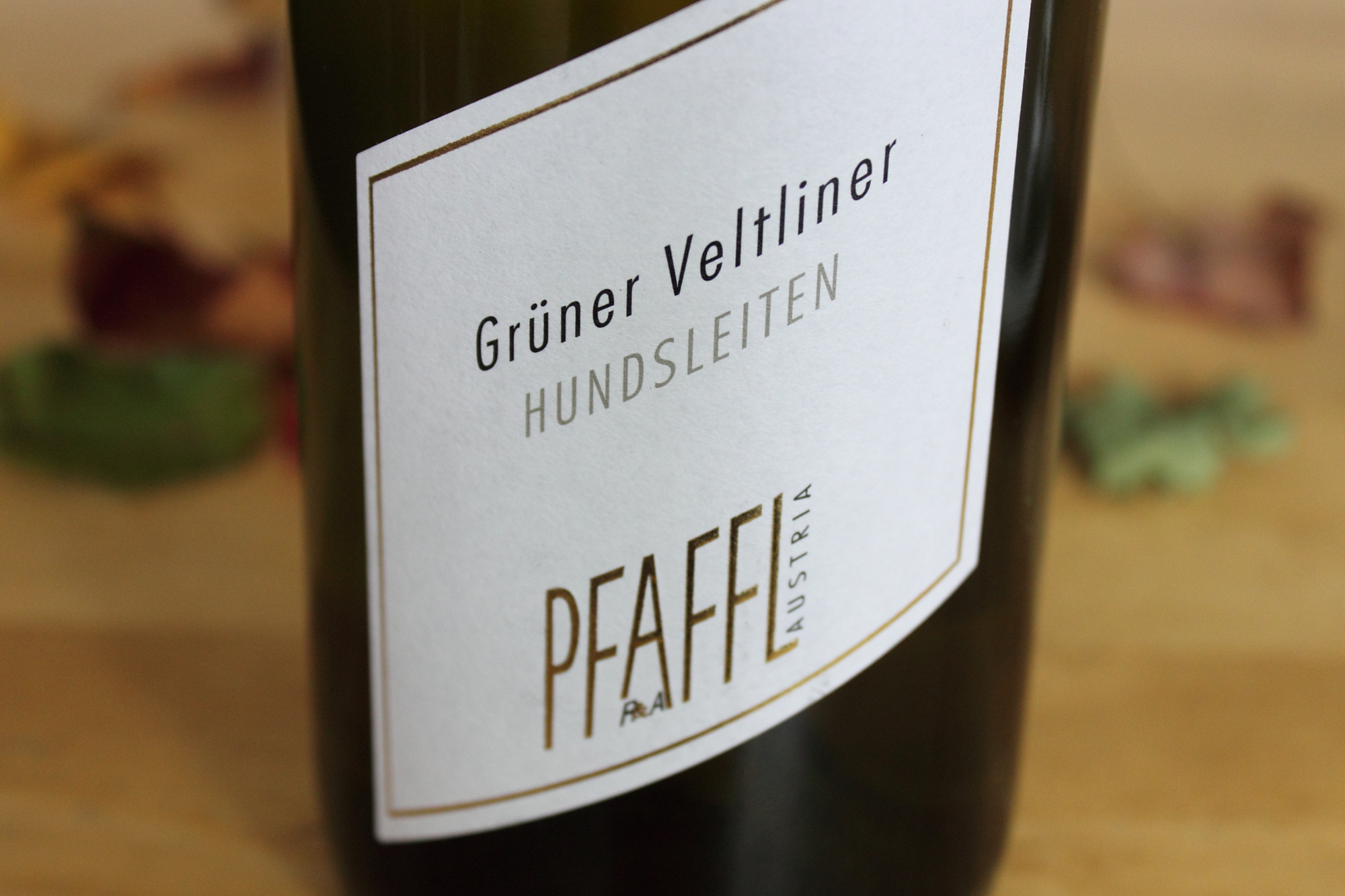Weingut Salwey, Weißburgunder RS, 2008
I always love it when a review is a first: To be able to report on a winery, or better still, a whole region of the wine world, that we have not yet touched upon. A mere check-up review, so to speak, on a well-represented winery and a vintage a few years past, seems much less exciting. But these, too, are very important. When wine guides, such as the very serious German online publication "Wein-Plus" regularly hold samples back for re-tasting and re-evaluation a few years after the first tasting, the results are often surprising, and always instructive. More wine guides and publications should do it, rather than to just keep celebrating each new vintage's potential.
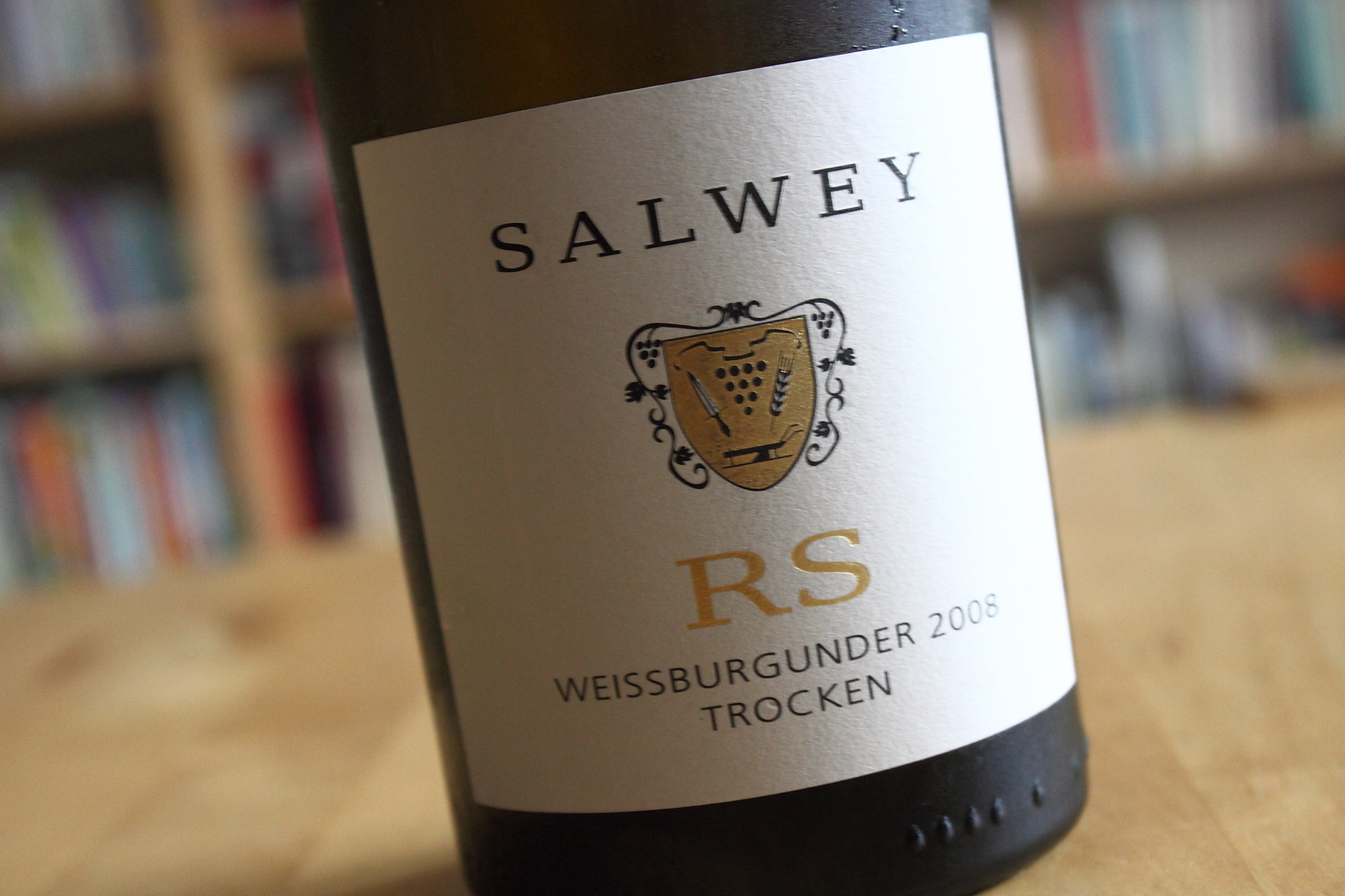
I remember exactly the moment I first tasted this particular Pinot Blanc. It was at the annual autumn tasting extravaganza at Munich's Bayerischer Hof. I loved it right away for its streak of vibrant freshness that distinguished it among some of the blander white Pinots also on offer. My Co-Rambler Torsten, I also recall, was a bit more reserved. His may have been the better judgement.


